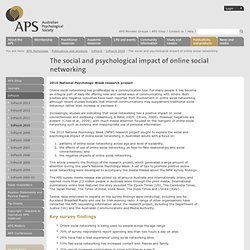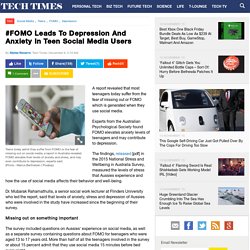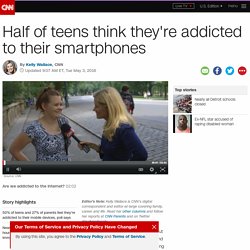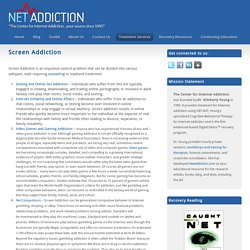

More Spin on “Internet Addiction Disorder” So you wonder how “Internet Addiction Disorder” is faring these days?

The recent research is no more persuasive. We recently received a copy of a newsletter published by one of the proponents of this disorder, which noted, The CyberPsychology & Behavior Journal has been a wonderful academic journal and resource for those in the online psychology field. As many of you may know, articles focus on ways that virtual reality can be used in psychotherapy, experiments in digital literacy, to articles on online dependencies and Internet addiction. In the August issue, a new study conducted at Cardiff University in the United Kingdom completed a validation test of Young’s Internet Addiction Scale.The exact reference is: The Psychometric Properties of the Internet Addiction Test by L.
Of course, they failed to mention what the researchers actually found in their study. First, the researchers note how they obtained their sample, but not how the study was advertised online. Dr. The social and psychological impact of online social networking. 2010 National Psychology Week research project Online social networking has proliferated as a communication tool.

For many people it has become an integral part of daily life offering new and varied ways of communicating with others. Both positive and negative outcomes have been reported from involvement in online social networking, although recent studies indicate that internet communications may supplement traditional social behaviour rather than increase or decrease it. Internet and Computer Addiction: Signs, Symptoms, and Help for Balancing Your Time Online and Off.
Why we should rethink our relationship with the smartphone. #FOMO Leads To Depression And Anxiety In Teen Social Media Users. Teens today admit they suffer from FOMO or the fear of missing out on social media, a report in Australia revealed.

FOMO elevates their levels of anxiety and stress, and may even contribute to depression, experts said. (Photo : Marius Berthelsen | Pixabay) A report revealed that most teenagers today suffer from the fear of missing out or FOMO which is generated when they use social media. Experts from the Australian Psychological Society found FOMO elevates anxiety levels of teenagers and may contribute to depression. The findings, released [pdf] in the 2015 National Stress and Wellbeing in Australia Survey, measured the levels of stress that Aussies experience and how the use of social media affects their behavior and well-being. Dr. Missing out on something important The survey included questions on Aussies' experience on social media, as well as a separate survey containing questions about FOMO for teenagers who were aged 13 to 17 years old. Intensified anxiety. In South Korea, a rehab camp for Internet-addicted teenagers. MUJU, South Korea — Since he arrived at the camp, Yoon Yong-won had experienced recurrent nightmares.

He was playing a game on his phone, and the image of the phone in his hands was so vivid. But then he woke up with a fright and stared at his hands: empty. Yoon was in day six of a 27-day camp aimed at teenagers like him: state-certified Internet addicts. The first day he arrived and had to turn over his devices was a day of despair. “I thought, ‘My future is pitch-black,’ ” he said over a lunch of spaghetti Bolognese and kimchi on a recent day. South Korea is the most wired country on the planet, a country where it’s entirely unremarkable for elementary school students to carry smartphones, where the cell network is so good that people livestream TV on the subway. Then there are camps such as this one, offering three- or four-week courses of stress-reduction classes and wholesome activities that include hiking, rock-climbing and learning to play guitar. Going cold turkey isn’t easy. S. 50% of teens feel addicted to their phones, poll says.
A new poll that confirms just how much teens depend on their phones gives me even more to worry about.

"If your teens would prefer gaming indoors, alone, as opposed to going out to the movies, meeting friends for burgers or any of the other ways that teens build camaraderie, you may have a problem. " How many teens are truly addicted to their devices and the Internet? It is difficult to say. A 2011 review of 18 research studies found that Internet addiction might affect between zero and 26% of adolescents and college students in the United States, according to Common Sense Media.
Compulsive Surfing. Screen Addiction is an impulsive-control problem that can be divided into various subtypes, each requiring counseling or inpatient treatment: Sexting and Online Sex Addiction – Individuals who suffer from this are typically engaged in viewing, downloading, and trading online pornography or involved in adult fantasy role-play chat rooms, social media, and sexting.Internet Infidelity and Online Affairs – Individuals who suffer from an addiction to chat rooms, social networking, or texting become over-involved in online relationships or may engage in virtual adultery.

Screen addiction results in online friends who quickly become more important to the individual at the expense of real life relationships with family and friends often leading to divorce, separation, or family instability.Video Games and Gaming Addiction – Anyone who has experienced it knows all too well – video game addiction is real. Based upon the DSM, Dr.